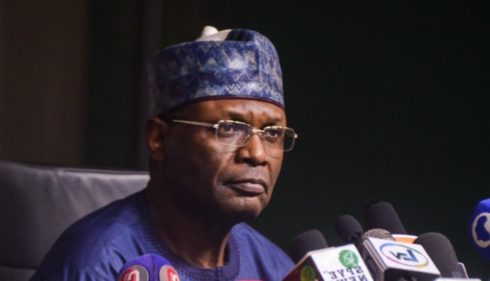The Supreme Court’s landmark verdict on local government autonomy has reignited discussions on the necessity of the Independent National Electoral Commission (INEC) overseeing local council elections. The ruling, delivered on July 11, 2024, declared unconstitutional the state governments’ refusal to grant financial autonomy to local governments and the arbitrary removal of elected council chairmen. This decision has shifted public discourse towards a potential overhaul of the current electoral framework, with many advocating for INEC to take charge of elections in the 774 local government areas across Nigeria.
Attorney General of the Federation, Lateef Fagbemi, SAN, spearheaded the legal battle against state governments, challenging their encroachment on local government autonomy. Initially, skeptics doubted the success of this bold move, anticipating a likely defeat in court. Contrary to these expectations, the Supreme Court’s ruling has been hailed as a historic victory for the third tier of government. The judgement has compelled about 13 state governors to hastily conduct local government polls, a move seen as an attempt to comply with the new legal directive while retaining some control over local councils.
The Need for INEC’s Involvement in Local Elections
The Supreme Court’s decision has sparked a broader conversation about the efficacy of the State Independent Electoral Commissions (SIECs). Critics argue that these commissions are often susceptible to manipulation by state governors, undermining the democratic process at the local level. The call for INEC to oversee local government elections is gaining momentum, with proponents believing that it would ensure greater transparency, impartiality, and credibility in the electoral process. By entrusting INEC with this responsibility, they contend that local governments would finally achieve the full autonomy envisioned by the constitution.
Political analysts and civil society organizations have lauded the federal government for taking decisive action to protect the financial independence of local councils. However, they emphasize that granting financial autonomy alone is insufficient. To truly empower local governments, it is crucial to establish an independent and credible electoral process free from the influence of state governors. This would not only enhance the legitimacy of local council elections but also strengthen the overall democratic fabric of the nation.
The Supreme Court’s verdict marks a significant step towards reinforcing local government autonomy in Nigeria. As the debate continues, the focus remains on whether INEC can rise to the occasion and deliver credible local council polls, thereby fulfilling the promise of true decentralization and grassroots democracy.
Calls for Electoral Reform: Shifting Responsibilities to INEC
In the aftermath of a recent Supreme Court verdict, there is a growing chorus of voices calling for significant changes in Nigeria’s electoral system. Prominent among these is the push to replace the State Independent Electoral Commission (SIEC) with the Independent National Electoral Commission (INEC) for the conduct of local government elections. This movement is gaining traction among political analysts, lawmakers, and civil society groups who believe such a shift could enhance the credibility and efficiency of local elections.
Senator Orji Kalu, representing Abia North Senatorial District, has been vocal in advocating for this change. He argues that transferring the responsibility to INEC would bolster the autonomy of local governments and alleviate the pressure on state governments. “When governance reaches the grassroots, it becomes easier to identify and hold leaders accountable,” Kalu remarked, emphasizing the potential for improved transparency and responsibility in local governance.
Senator Sunday Karimi, Chairman of the Senate Services Committee and representative of Kogi West, echoed Kalu’s sentiments, revealing that the National Assembly is poised to initiate the necessary legislative steps to transfer local election duties to INEC. This proposed reform aims to create a more uniform and reliable electoral process across Nigeria, addressing longstanding concerns about the impartiality and effectiveness of SIECs.
Constitutional Amendments and Divergent Opinions
The Human Rights Writers Association of Nigeria (HURIWA) has also entered the fray, calling for urgent constitutional amendments to enshrine INEC’s role in local elections. HURIWA’s National Coordinator, Comrade Emmanuel Onwubiko, suggests that the INEC should adopt similar patterns and methodologies as the Electoral Commission of Great Britain, with local electoral services teams embedded within the INEC framework to ensure optimal functionality.
However, not everyone agrees that replacing SIECs with INEC is the panacea for Nigeria’s electoral challenges. Dr. Ahmed Raji (SAN), a former Resident Electoral Commissioner (REC), cautions against over-centralization. “Where is the assurance that INEC will fare better? We need to deepen democracy and address the specific shortcomings of the state commissions instead of over-centralizing,” Raji warned. He advocates for identifying and blocking loopholes within the existing SIEC framework rather than assuming that a centralized approach will resolve all issues.
This debate highlights the divergent views on the best path forward for Nigeria’s electoral system. While some see a centralized approach as a way to ensure consistency and integrity, others fear it may simply shift problems without addressing the root causes.
The Fate of SIEC Staffers: Integration and Job Security
Amid the growing calls to abolish SIECs, concerns about the fate of their staffers have emerged as a critical issue. Analysts suggest that if INEC takes over the responsibility of conducting local government polls, SIEC staffers could be integrated into INEC, thereby minimizing the risk of job losses. This integration would be essential to maintain institutional knowledge and ensure a smooth transition.
However, the fear of job loss remains a significant concern among SIEC employees. The Federal Government and INEC will need to address this issue comprehensively to ensure that staffers’ livelihoods are protected during the transition. Clear communication and well-structured plans for staff integration will be vital to assuage fears and secure the cooperation necessary for a successful handover.
As the debate continues, the resolution of these employment concerns will be crucial in determining the overall success and acceptance of the proposed electoral reforms. The government’s ability to manage this transition smoothly will be a key test of its commitment to improving Nigeria’s electoral system.
Table of Contents
Discover more from OGM News NG
Subscribe to get the latest posts sent to your email.














